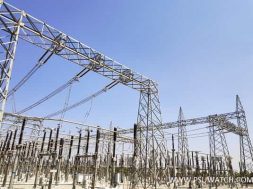
Tritium inks deal to supply electric vehicle fast chargers for India
The electric vehicle fast charging technology of Brisbane-based Tritium will soon be plugging in to electric vehicles in one of the world’s potentially biggest markets, after the company signed an MOU with India’s Tata AutoComp Systems.
In a joint statement released on Tuesday, India’s leading auto-component conglomerate said it had signed a Memorandum of Understanding with Tritium to supply its world-leading Veefil-RT 50kW DC fast chargers to the subcontinental market.
The deal marks a major opportunity for Tritium, coinciding as it does with the second phase of India’s FAME (Faster Adoption and Manufacture of (Hybrid and) Electric Vehicles) scheme, which Tritium CEO David Finn has described as one of the most progressive EV policy initiatives in the world.
Prior to this policy, India has been – like Australia – somewhat of a global laggard in EV uptake, with just 2,000 sales of electric vehicles recorded nationally in 2018, according to Bloomberg New Energy Finance.
The government is now aiming for electric vehicles to make up 15 per cent of new car sales in the next five years and 30 per cent by 2030.
Under the FAME II scheme, announced last month, the government will subsidise 1 million electric two-wheelers, 500,000 electric three-wheelers, 55,000 electric cars and 7,000 e-buses – focusing at first on the government and fleet car market.
The scheme also proposes support for setting up charging infrastructure, including 2,700 charging stations to be set up at the offices of governments and corporations in major cities across India.
“The MoU ensures Tata AutoComp remains at the forefront of innovation in India, as the nation adopts the FAME India Scheme,” Finn said in comments on Tuesday.
“The FAME Policy is among the most progressive initiatives in the world, and Tata AutoComp’s commitment to rolling out DC fast chargers for vehicles of all sizes is helping to put India ahead of the world in its drive towards a cleaner future.”
Tata AutoComp Systems managing director and CEO, Aravind Goel, said the deal with Tritium was about bringing the latest technology and solutions to Indian customers.
“With the augment of electric vehicles, the need for chargers capable of powering them is significant and we see a huge opportunity in this market.
“We are pleased to have Tritium as our partner, which has been offering cutting edge technology in DC chargers to the global automotive industry.”
Tritium has been going from strength to strength with its DC fast charging technology, including recently revealed US expansion plans, headed up by California clean tech industry veteran Jeff Wolfe, who was appointed as company president for the Americas region.
In 2018 the company had a big year in Europe in 2018, including a major deal to supply its Veefil-PK HPC systems to the IONITY network (a joint charging venture between BMW, Daimler, Ford and Volkswagen).
Overall, it has installed chargers in a total of 26 countries worldwide.
As noted above, there are some distinct – and disheartening – similarities between the Australian and Indian EV markets, including a lack of policy (until recently in India), a lack of policy consistency between states and regions, and a lack of available electric car models.
According to Jagjit Singh, head of business development South Asia for Tritium, there are only two locally manufactured electric cars, one from Mahindra and one from Tata, but both have small batteries and thus limited driving range.
But this is set to change. Tata is due to release its longer range EV in around September this year, and mid-price range models from outside India from companies including Suzuki, Hyundai, Nissan and Kia – the latter of which is setting up a factory in Andhra Pradesh – are all due to hit the market in the very near future.
“The global electric market is expanding rapidly in India, mostly driven by the policy,” Singh told The Driven on Tuesday.
“The government is pumping a lot of money into that (FAME policy), including into trying to promote public charging infrastructure.
Singh said that what appealed to Tritium about Tata was its recently created electric mobility division, as well as the fact that it supplies auto parts to many global car companies.
“This gives us leverage and makes it easy for us to get access to the OEMs (original equipment manufacturers) in India,” he said.
“We are jointly opening up what is … a multi-billion dollar market. It’s a really big market.
“Initially, in the first year we’re expecting some good numbers for us, but business will grow as EV demand grows in India.”













